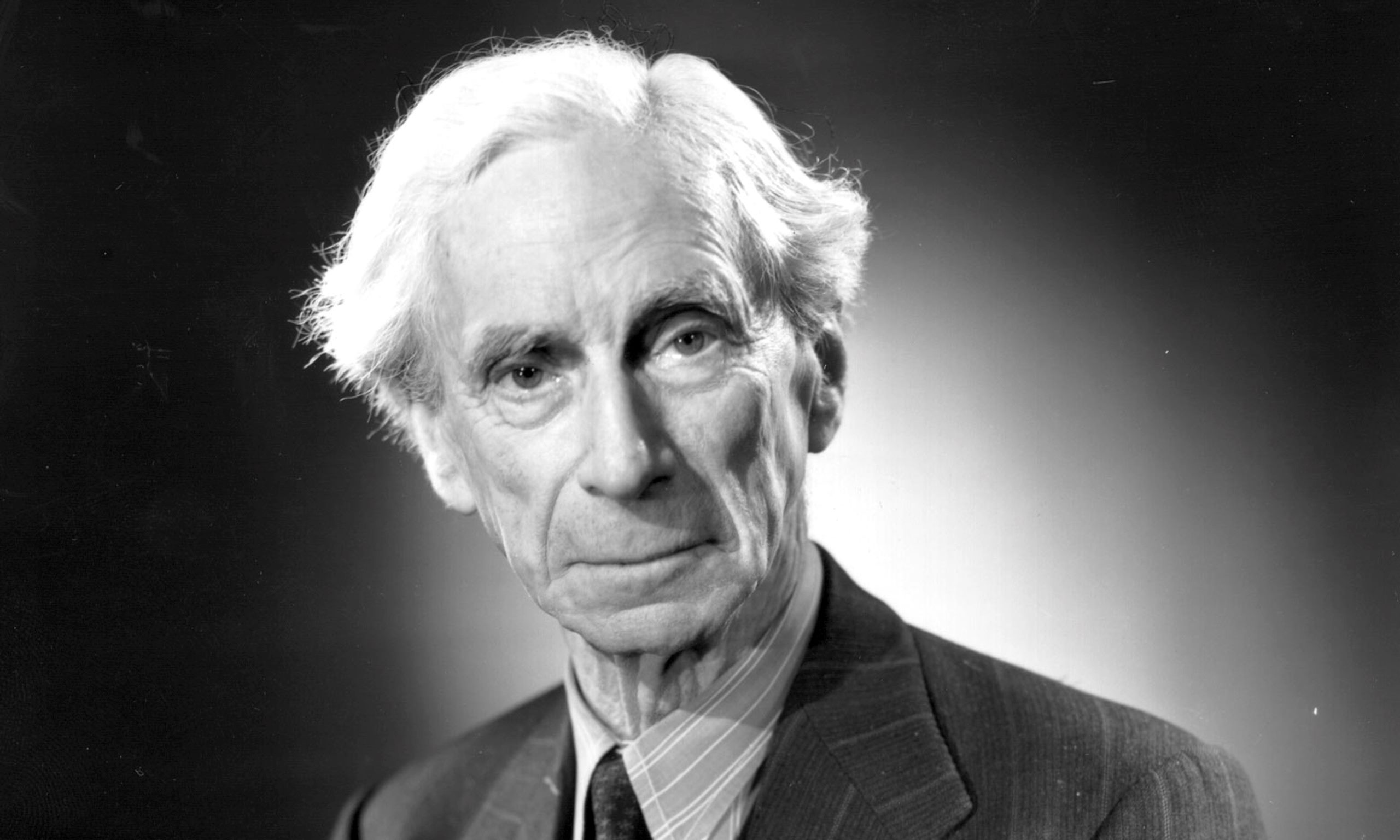
Bertrand Russell, the renowned British philosopher, logician, mathematician, historian, and social critic, is a figure who continues to captivate minds until this day. Known for his intellectual prowess and provocative ideas, Russell’s life is shrouded in fascinating enigmas that make him an endlessly intriguing subject of study.
In this article, we will delve into the depths of Russell’s life and uncover 16 enigmatic facts that shed light on various aspects of his character and accomplishments. From his controversial views on religion and politics to his unconventional personal life, Russell has left an indelible mark on the world through his works and actions.
So, prepare to explore the paradoxes and mysteries that surround one of the most influential thinkers of the 20th century. Let’s uncover the lesser-known facets of Bertrand Russell and gain a deeper understanding of his complex and intriguing persona.
Key Takeaways:
- Bertrand Russell, a brilliant philosopher, was born into an aristocratic family, advocated for peace, and championed women’s rights, leaving a legacy that continues to inspire modern thought and social causes.
- Russell’s enigmatic life and philosophical contributions, including his paradox in set theory and advocacy for critical thinking in education, continue to captivate and influence thinkers and popular culture.
Russell was born into an aristocratic family.
Bertrand Russell was born on May 18, 1872, into a prominent British aristocratic family. His grandfather, Lord John Russell, served as the British Prime Minister not once, but twice.
Russell was a proponent of analytic philosophy.
One of Russell’s significant contributions was his involvement in the development of analytic philosophy, a philosophical approach that emphasizes the importance of logic and analysis in understanding complex concepts.
Russell was a vocal advocate for pacifism.
Throughout his life, Russell espoused pacifism and actively campaigned against war. He believed that peaceful resolutions and diplomacy should be sought instead of resorting to violence.
Russell was imprisoned for his anti-war activism.
During World War I, Russell’s pacifist beliefs led to his arrest and subsequent imprisonment for his vocal opposition to the war. His time in prison only strengthened his determination to advocate for peace.
Russell was awarded the Nobel Prize in Literature.
In 1950, Russell was awarded the Nobel Prize in Literature for his numerous literary works, which showcased his profound understanding of philosophy, logic, and social issues.
Russell was a champion for women’s rights.
Russell was ahead of his time when it came to championing women’s rights. He was an outspoken advocate for gender equality and campaigned for women’s suffrage.
Russell’s paradox challenged the foundations of mathematics.
Russell’s paradox, a fundamental concept in set theory, demonstrated the limitations and inconsistencies within formal systems of mathematics. This paradox had a profound impact on the field of logic.
Russell co-authored the monumental Principia Mathematica.
In collaboration with Alfred North Whitehead, Russell co-authored the three-volume Principia Mathematica. This landmark work aimed to establish a logical foundation for mathematics.
Russell was an early advocate for gay rights.
Russell was openly supportive of gay rights, even during a time when homosexuality was heavily stigmatized. He signed petitions and openly supported the decriminalization of homosexuality.
Russell’s philosophical views evolved over time.
Russell’s philosophical journey saw a transformation from his earlier idealist views to a more empirical and logical approach later in his career. He constantly re-evaluated his beliefs and embraced new ideas.
Russell believed that education should focus on critical thinking.
According to Russell, education should prioritize teaching critical thinking skills rather than simply imparting knowledge. He believed that the ability to question and analyze was essential for intellectual growth.
Russell was married four times.
Russell’s personal life was as varied as his intellectual pursuits. He entered into four marriages throughout his life, each with its unique dynamics and challenges.
Russell was a prolific writer.
Throughout his career, Russell authored numerous books and essays that covered a wide range of topics, including philosophy, politics, religion, and social issues.
Russell was actively involved in political activism.
Aside from his pacifist activism, Russell was deeply engaged in various political causes. He campaigned for disarmament, nuclear non-proliferation, and social justice.
Russell’s philosophical works continue to influence modern thought.
The ideas and concepts put forth by Russell in his philosophical works, such as “The Problems of Philosophy” and “A History of Western Philosophy,” continue to shape and inspire modern philosophical discourse.
Russell’s legacy extends beyond academia.
While Russell’s contributions to philosophy and academia are widely recognized, his influence also extends to popular culture. His writings and ideas have been referenced and explored in various forms of media.
Conclusion
In conclusion, Bertrand Russell was a fascinating and enigmatic figure whose life and work continue to captivate people to this day. From his groundbreaking contributions to philosophy and mathematics to his outspoken views on politics and religion, Russell’s legacy is one of intellectual curiosity, skepticism, and a relentless pursuit of truth. His writings and ideas have left a lasting impact on various fields, offering profound insights into the nature of knowledge, logic, and the human condition. As we delve deeper into the life of Bertrand Russell, we uncover a complex and multilayered individual whose ideas and philosophies continue to inspire and challenge us. Whether you are an avid follower of Russell’s work or just discovering his contributions, his influence on the intellectual landscape cannot be denied.
FAQs
1. Who was Bertrand Russell?
Bertrand Russell was a British philosopher, mathematician, logician, and social critic.
2. What were some of Russell’s notable contributions?
Russell made significant contributions to logic, mathematics, philosophy of language, and epistemology.
3. What are some famous books written by Bertrand Russell?
Some of Russell’s notable works include “Principia Mathematica”, “The Problems of Philosophy”, and “A History of Western Philosophy.
4. How did Russell’s political views influence his work?
Russell was a vocal advocate for pacifism and played a key role in the anti-war and anti-nuclear weapons movements of his time. His political views often found expression in his writings and speeches.
5. What was Russell’s stance on religion?
Russell was known for his criticism of organized religion and his views leaned towards atheism. He believed that religious doctrines should be subjected to rational scrutiny.
6. How did Bertrand Russell impact the field of philosophy?
Russell’s work revolutionized the study of logic and had a profound influence on the development of analytical philosophy. His logical atomism and theory of descriptions are still widely discussed and debated.
Bertrand Russell's enigmatic life and groundbreaking contributions to philosophy, mathematics, and social activism continue to captivate minds. His paradoxical insights challenged conventional wisdom, while his unwavering commitment to critical thinking and human rights inspired generations. Russell's legacy as a brilliant thinker, prolific writer, and passionate advocate for change remains as relevant today as ever. If you found these facts about Russell intriguing, you might also enjoy exploring the astonishing life of his contemporary, Alfred North Whitehead, whose collaboration with Russell on Principia Mathematica left an indelible mark on the world of mathematics and logic.
Was this page helpful?
Our commitment to delivering trustworthy and engaging content is at the heart of what we do. Each fact on our site is contributed by real users like you, bringing a wealth of diverse insights and information. To ensure the highest standards of accuracy and reliability, our dedicated editors meticulously review each submission. This process guarantees that the facts we share are not only fascinating but also credible. Trust in our commitment to quality and authenticity as you explore and learn with us.


